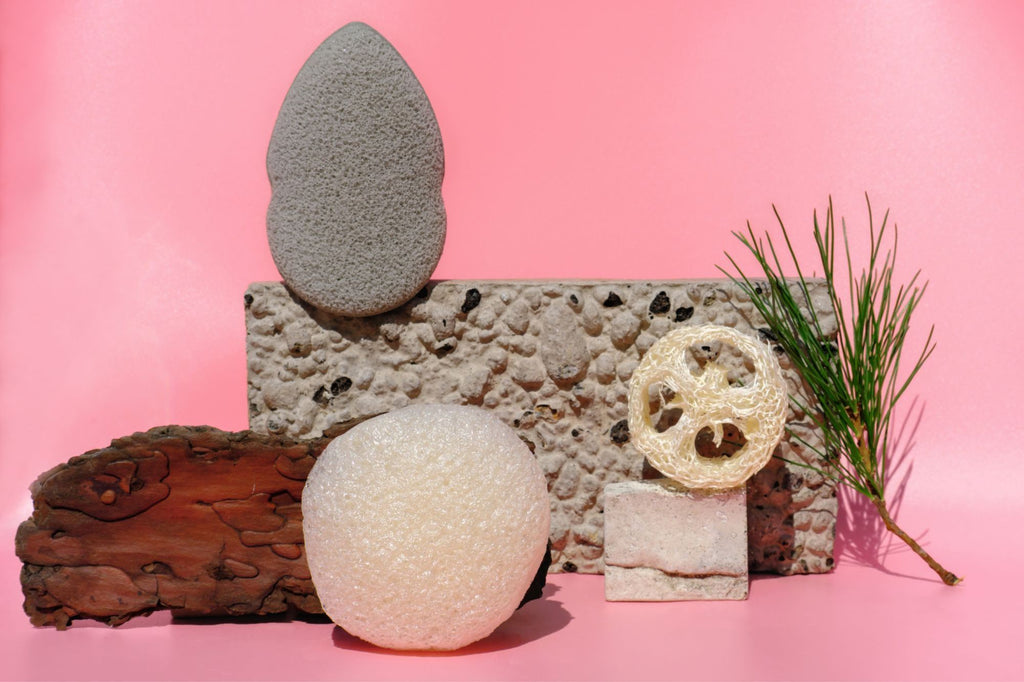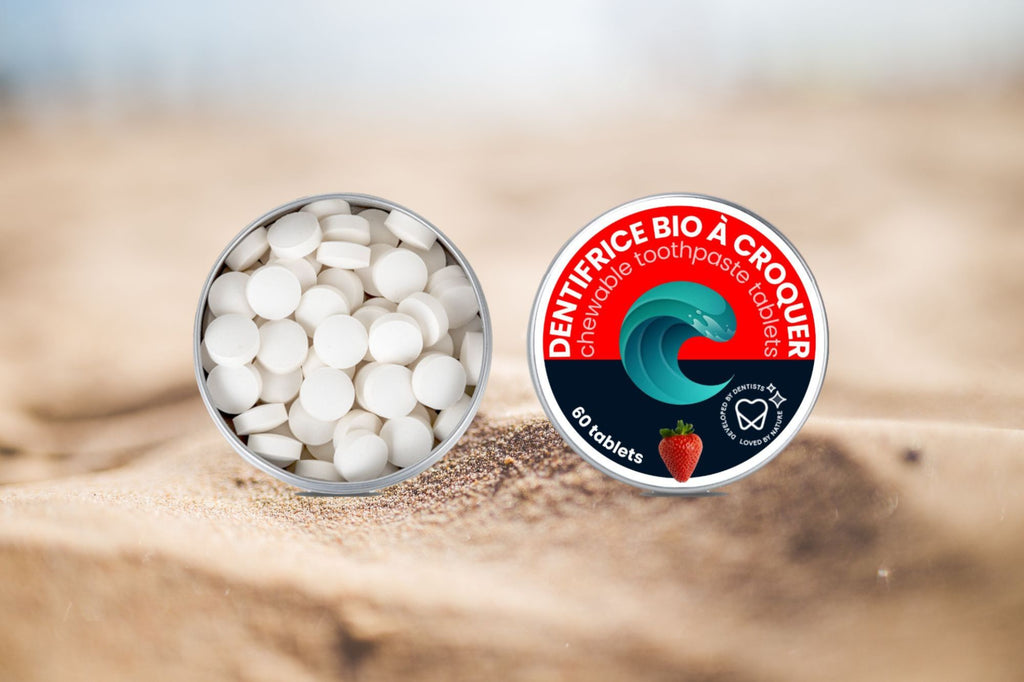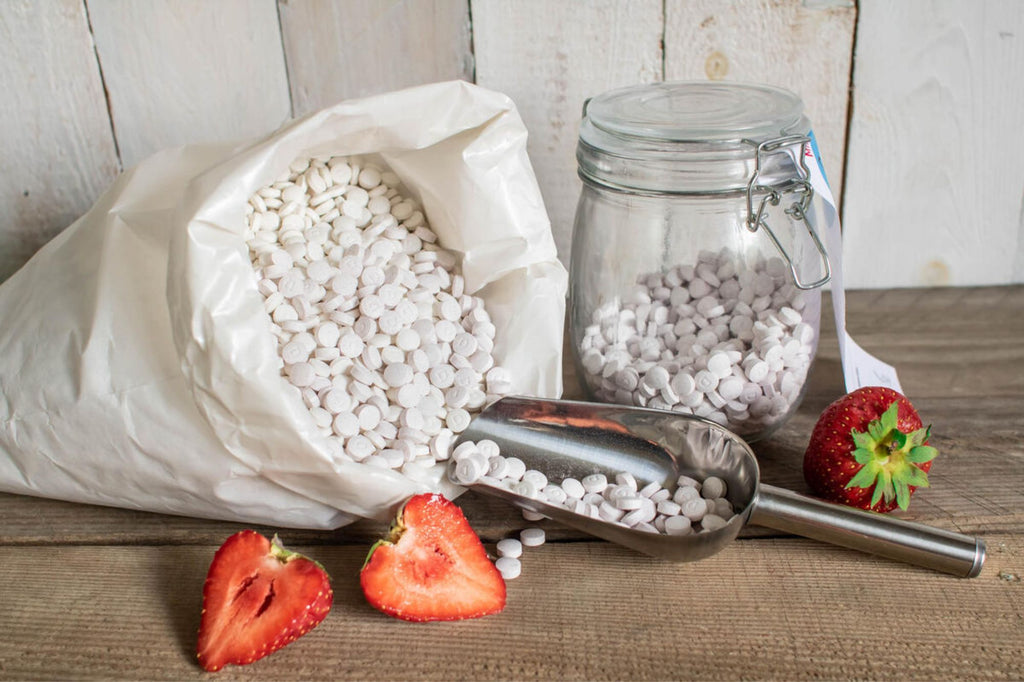Introduction
Zero waste is much more than just an ecological trend; it is a way of life based on principles of environmental responsibility and sustainability. In this introduction, we will briefly explore the concept of zero waste and its crucial importance for preserving the environment. We will also put into context the urgency of reducing our waste production and adopting sustainable practices to ensure a healthier future for our planet.
Brief overview of the concept of zero waste
Zero waste is a way of life that aims to minimize waste production by avoiding, reducing, reusing, recycling and composting. Rather than simply focusing on recycling, zero waste encourages us to rethink our relationship with waste and take a proactive approach to minimizing our ecological footprint.
The concept of zero waste is based on the idea that all waste is simply a misused resource. By adopting more thoughtful consumption habits and favoring sustainable and reusable products, we can significantly reduce our waste production and preserve the planet's natural resources.
The urgency of reducing our waste production
We face a global waste crisis, with tons of plastic, electronic and other waste polluting our oceans, soil and atmosphere. This overproduction of waste causes considerable environmental damage, threatening biodiversity, air and water quality, and human health.
Faced with this crisis, it is imperative that we take immediate steps to reduce our waste production and adopt sustainable practices. Zero waste offers a practical and achievable solution to reverse this trend by encouraging everyone to be more aware of their consumption choices and their impact on the environment.
By reducing our reliance on disposable products and promoting sustainable alternatives, we can not only reduce our ecological footprint, but also inspire others to follow our lead and take action to protect our planet for future generations.
In this article, we will explore in detail the five fundamental principles of zero waste: refuse, reduce, reuse, recycle and compost.
By following these principles, you can significantly reduce your ecological footprint and contribute to the preservation of the environment.

Summary
Introduction :
- Brief overview of the concept of zero waste and its importance for the environment.
- Context on the urgency of reducing our waste production and adopting sustainable practices.
1. Refuse:
- Explanation of the principle of refusing and its role in reducing waste.
- Tips for refusing disposable products, unnecessary packaging and unnecessary purchases.
2. Reduce:
- Discussion on reducing consumption and waste production.
- Practical advice for reducing your consumption of energy, water and natural resources.
3. Reuse:
- Exploration of the principle of reuse and its impact on waste reduction.
- Creative ideas for reusing objects and materials in everyday life.
4. Recycle:
- Presentation of the benefits of recycling and recyclable materials.
- Tips for properly sorting and recycling waste at home.
5. Compost:
- Explanation of composting and its benefits for the environment.
- Practical guide to starting a compost at home and using organic waste efficiently.
Conclusion :
- Summary of the main points covered in the article.
- Call to action to encourage readers to put zero waste principles into practice in their daily lives.

1. Refuse
The first pillar of zero waste, “Refuse”, is based on the principle of actively refusing what we do not need and what generates unnecessary waste. By refusing disposable products, excessive packaging and unnecessary purchases, we can significantly reduce our ecological footprint and our waste production.
Explanation of the principle of refusing
Refusing involves questioning our consumption habits and becoming aware of the environmental impact of our choices. Rather than passively accepting disposable products and excessive packaging, we should ask ourselves: "Do I really need this?" By refusing what is useless, we avoid creating waste from the start.
The principle of refusing goes beyond simple material goods. It also includes services and activities that can contribute to overconsumption and waste production. For example, refusing unsolicited advertising, plastic bags when shopping and unnecessary gifts can help reduce our ecological footprint significantly.
Tips for refusing disposable products and unnecessary purchases
To put the principle of refusing into practice, here are some practical tips:
- Evaluate your real needs: Before purchasing a product, ask yourself about its real necessity and its environmental impact.
- Favor sustainable alternatives: Opt for durable and reusable products rather than disposable products.
- Refuse unnecessary packaging: Prefer products in bulk or with minimal packaging.
- Avoid impulse purchases: Take time to think before buying something and avoid impulse purchases.
- Learn to say no: Don't be afraid to refuse free items or unnecessary gifts.
By putting these tips into practice, you can gradually integrate the principle of refusing into your daily lifestyle and help reduce the amount of waste you produce.

2. Reduce
The second essential step towards zero waste is the reduction of consumption and waste production. By adopting more conscious consumption practices and reducing our ecological footprint, we can significantly contribute to preserving the environment.
Discussion on reducing consumption and waste production
Reducing our consumption involves rethinking our real needs and eliminating what is superfluous. It also means challenging the culture of overconsumption and promoting simpler, more sustainable lifestyle choices. By reducing the amount of goods we consume, we also reduce the amount of waste we produce, helping to conserve natural resources and limit our impact on the environment.
Reducing waste production goes hand in hand with reducing consumption. By minimizing packaging , opting for bulk products and favoring sustainable alternatives, we can significantly reduce the amount of waste we generate on a daily basis.
Practical advice for reducing your consumption of energy, water and natural resources
To reduce our ecological footprint and adopt a more sustainable lifestyle, here are some practical tips:
- Save energy: Turn off lights and electronic devices when not in use, use energy-efficient light bulbs, and favor energy-efficient appliances.
- Save water: Fix leaks, use low-flow toilets, take shorter showers, and collect rainwater to water plants.
- Optimize your travel: Choose public transport, carpooling, walking or cycling to reduce carbon emissions linked to travel.
- Reduce your consumption of meat and animal products: Opt for vegetarian or vegan meals more often to reduce your carbon footprint and water consumption.
- Buy thoughtfully: Choose high-quality, durable products and avoid impulsive purchases.
By adopting these tips and reducing your consumption of energy, water and natural resources, you can significantly contribute to preserving the environment and reducing your ecological footprint.

3. Reuse
Reuse is a fundamental pillar of zero waste, aiming to extend the life of objects and materials as much as possible. By reusing what we already have, we reduce the need to produce new goods and thus help reduce our waste production.
Exploring the principle of reuse
Reuse involves giving objects and materials a second life rather than throwing them away after a single use. This may involve repairing damaged items, reusing packaging, or even transforming items into new products. By reintroducing these objects into the life cycle, we reduce the demand for new resources and help preserve the environment.
The principle of reuse can apply to many aspects of our daily lives, from how we manage our waste to how we choose our products. By taking a proactive approach to reuse, we can significantly reduce our ecological footprint and help create a more sustainable circular economy.
Creative ideas for reusing objects and materials
Here are some creative ideas to put the principle of reuse into practice in your daily life:
- Reuse containers: Use empty jam jars as storage containers or vases for flowers.
- Repair clothes: Learn to sew and repair damaged clothes rather than throwing them away.
- Give furniture a second life: Reinvent old furniture by repainting it or reconfiguring it for new uses.
- Use reusable bags: Opt for reusable fabric bags for shopping rather than single-use plastic bags.
- Favor second-hand items: Buy second-hand products or exchange items with other people rather than buying new.
By integrating these creative ideas into your daily life, you can help reduce your waste production and promote a more sustainable lifestyle based on the reuse and preservation of resources.

4. Recycle
Recycling is an essential component of zero waste, giving materials a new life and reducing demand for natural resources. By recycling, we help preserve the planet's resources and reduce the amount of waste sent to landfill.
Presentation of the benefits of recycling and recyclable materials
Recycling has many advantages, both environmentally and economically. By recycling, we reduce the amount of waste sent to landfill, which helps conserve space and reduce pollution of soil and groundwater. Additionally, recycling saves valuable natural resources by reusing existing materials rather than extracting new ones.
Many common materials can be recycled, including paper, cardboard, glass, plastic and metal. By recycling these materials, we help reduce our ecological footprint and promote a more sustainable circular economy.
Tips for properly sorting and recycling waste at home
To get the most out of recycling at home, here are some practical tips:
- Sort your waste: Separate recyclable materials such as paper, plastic, glass and metal from non-recyclable waste.
- Check local guidelines: Learn about recycling guidelines in your area and follow recommended sorting guidelines.
- Compact recyclable materials: Crush cardboard boxes and plastic bottles to save space in your recycling bin.
- Avoid contamination: Make sure recyclable materials are clean and dry to avoid contamination.
- Recycle electronic waste correctly: Take obsolete electronic devices to specialized recycling centers to handle them responsibly.
By following these tips and taking steps to properly sort and recycle your waste at home, you can help reduce your environmental footprint and promote a more sustainable lifestyle based on recycling and conserving resources.

5. Compost
Composting is an essential zero waste practice, transforming organic waste into a nutrient-rich natural fertilizer for the soil. By composting, we can reduce the amount of waste sent to landfill while improving the health of our soil and promoting the growth of healthy plants.
Explanation of composting and its benefits for the environment
Composting is a natural process of breaking down organic waste, such as kitchen scraps, fallen leaves, and yard waste, into a potting soil-like material called compost. This compost can be used as a soil amendment to enrich the soil with essential nutrients, thereby promoting plant growth and overall ecosystem health.
By composting, we reduce the amount of organic waste sent to landfill, which helps reduce emissions of methane, a powerful greenhouse gas, and conserve space and natural resources. In addition, composting makes it possible to produce high-quality natural fertilizer, thus avoiding the use of chemical fertilizers that are potentially harmful to the environment.
Practical guide to starting a compost at home
Starting a home compost is relatively simple and can be done with little effort. Here's a handy guide to help you get started:
- Choose a location: Find a place in your garden or on your balcony to install your composter. Make sure it is well ventilated and protected from bad weather.
- Collect organic waste: Collect organic waste, such as kitchen scraps, fallen leaves, yard waste and coffee grounds, in a dedicated container.
- Alternate layers: Alternate layers of damp waste (like kitchen scraps) with dry materials (like fallen leaves or shredded paper) to encourage decomposition and reduce odors.
- Keep compost moist: Water your compost regularly to maintain adequate humidity and encourage decomposition.
- Mix regularly: Stir your compost regularly to promote aeration and speed up the decomposition process.
- Use compost: Once your compost is mature, use it as a soil amendment to enrich your garden, flower beds or houseplants.
By following these simple steps, you can start and maintain a successful home compost, helping to reduce your environmental footprint and promote a more sustainable lifestyle.

Conclusion
In this article, we explored in detail the five fundamental principles of zero waste: refuse, reduce, reuse, recycle and compost. By adopting these principles in our daily lives, we can contribute significantly to preserving the environment and reducing our ecological footprint.
Summary of the main points covered in the article
We first discussed the principle of refusing, which involves questioning our consumption habits and actively refusing unnecessary products and packaging. Next, we addressed the reduction of consumption and waste production, highlighting the importance of rethinking our real needs and minimizing our impact on the environment.
We then explored the principle of reuse, which aims to extend the life of objects and materials as much as possible. Next, we presented the benefits of recycling and provided practical tips for properly sorting and recycling waste at home.
Finally, we looked at composting and its environmental benefits, as well as a practical guide to starting a home compost and using organic waste effectively.
Call to action to encourage readers to put zero waste principles into practice in their daily lives
To conclude, I strongly encourage you to put the principles of zero waste into practice in your daily life. Whether by refusing disposable products, reducing your consumption, reusing objects, correctly recycling your waste or starting a home compost, every little gesture counts.
By adopting a conscious approach to consumption and making sustainable choices, we can all help preserve our planet for future generations. Together, let's commit to creating a cleaner, more sustainable future for everyone.


